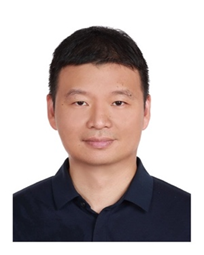Abstract
This presentation delves into the in-depth analysis of antifouling conducting polymer thin films by combining atomic force microscopy (AFM) and quartz crystal microbalance with dissipation (QCM-D) techniques. Antifouling conducting polymers have garnered significant attention in various applications, particularly in biomedical and sensor technologies. Understanding the structural and mechanical properties of these thin films is crucial for optimizing their performance. The atomic force microscopy provides high-resolution imaging, enabling the examination of surface morphology and mechanical properties at the nanoscale. Concurrently, quartz crystal microbalance with dissipation provides real-time monitoring of changes in mass and viscoelastic properties of the thin film. This dual analytical approach offers a comprehensive insight into the behavior of antifouling conducting polymer thin films, shedding light on their potential applications in biocompatible interfaces and sensing platforms. The presentation will discuss experimental methodologies, present our recent findings from the AFM and QCM-D analyses on functionalized poly(3,4-ethylenedioxythiophene) thin films, and highlight the implications of the results for the design and development of conducting polymers with enhanced antifouling properties.
Shyh-Chyang Luo, PhD
Department of Materials Science and Engineering
National Taiwan University

Shyh-Chyang Luo, PhD
Shyh-Chyang Luo received his B.S. in Chemistry (1992 - 1996) and M.S. in Materials Science and Engineering (1996 - 1998) from National Taiwan University. After he finished his military service in Taiwan, he went to the United States in 2001 to pursue his Ph.D. degree. He received his Ph.D. degree from the Department of Materials Science and Engineering, University of Florida in 2005.
Although the focus of his Ph.D. dissertation was mainly on light-emitting polymers and light-emitting devices, he found he is more interested in the field of bioengineering applications. Therefore, after he received his Ph.D. degree, he decided to do his postdoctoral research at the Institute of Bioengineering and Nanotechnology in Singapore to explore the field of conducting polymers for electrochemical biosensors (2006 - 2009). After that, he joined RIKEN in Japan as a research scientist. During his stay in Japan (2009 - 2013), he successfully received a Grant-in-Aid for Young Scientist (KAKENHI) from the Japan Society for Promotion of Science (JSPS) as a principal investigator to conduct independent research focused on the capture of rare cells. In 2015, he started his research career in the Department of Materials Science and Engineering at National Taiwan University.
To date, more than 70 SCI papers have been published in international academic journals, with a total citation count exceeding 3000 and an h-index of 28. Due to long-term research on anti-fouling conductive polymers, in 2019, Dr. Luo was invited to contribute a review paper titled 'Engineering Antifouling Conducting Polymers for Modern Biomedical Applications' by ACS Applied Materials & Interfaces. In 2018, Dr. Luo was honored as the 'International Young Scientist Invited Lecturer' by the Japan Polymer Society. Currently, Dr. Luo is appointed as an adjunct researcher at the Institute of Biomedical Engineering and Nanomedicine at the National Health Research Institutes and serves as a review committee member and co-convener for the chemistry discipline of the Department of Natural Sciences and Sustainable Development at the Ministry of Science and Technology Council (NSTC).
